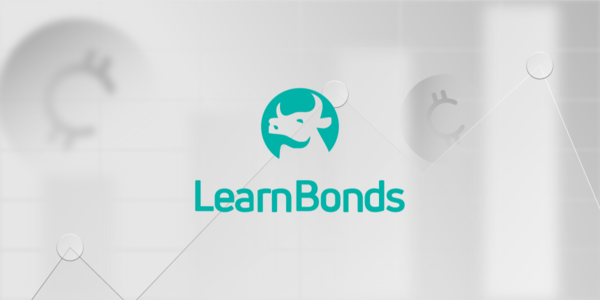Best Business Loan Providers & Sites in 2020

Is your business just kicking off or you’re a medium-sized company looking to invest in a new venture? A business loan could be just what you need to give it a boost to the new level. Business loans come in a range of options, starting with a small boost of a few thousand pounds – to a million pounds and more. The size of the loan and its underlying terms will typically be based on the financial health of your company as well as its creditworthiness. In other words, the stronger your balance sheet looks in the eyes of lenders, the more favourable the loan terms will be.
That said, business loans are slightly complex when compared to personal loans. And this prompted us to come up with an ultimate guide to Business Loans. Here, we’ll tell you everything that we think you should know – such as how business loans work, who they are suitable for, how much you can borrow, what interest you’ll typically pay, and more.
-
-
Try Our Recommended UK Payday Loan Provider 2020:
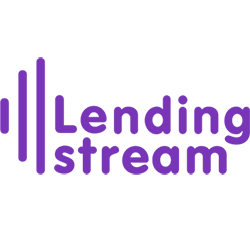
- Get an Instant Quote
- Apply within 2 Minutes
- Friendly Support Service
- FCA Regulated
 *Subject to lender requirements and approval.Note: While some business loans are unsecured – meaning that you won’t need to put any assets up as collateral to obtain the loan, others aren’t. As such, if you do obtain a secured loan and your business subsequently falls behind on the payments, you could lose the underlying asset.
*Subject to lender requirements and approval.Note: While some business loans are unsecured – meaning that you won’t need to put any assets up as collateral to obtain the loan, others aren’t. As such, if you do obtain a secured loan and your business subsequently falls behind on the payments, you could lose the underlying asset.What are the Pros and Cons of Business Loans?
The Pros
- Business loans are made available available to all businesses regardless of their size and networth
- Perfect if your business has just launched and you require a cash flow boost
- Great if your business is looking to invest in a new venture or project
- Range of loan sizes and terms available
- Most business loans can be applied for online – no need to visit a banking branch
The Cons
- If your business loan is secured, you could lose the security if you fall behind on your repayments
- Small businesses with no assets have a hard time accessing affordable loans
Best business loans providers: Reviewer’s choice
Reviewers Choice
HSBC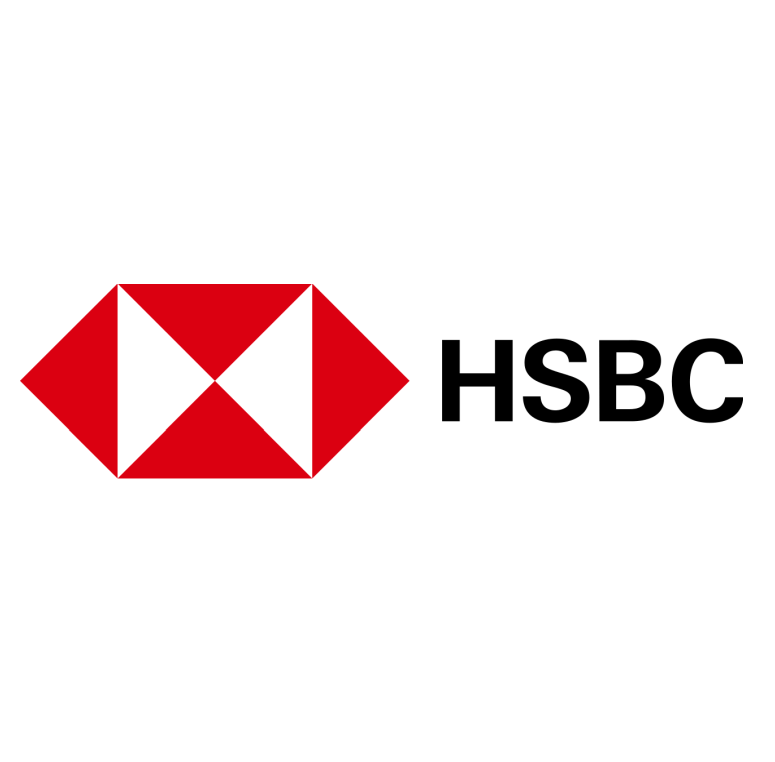 RatingAvailable Loan Amount£1,000 - £25,000Available Term LengthUp to 10 yearsRepresentative APR7.4% APRTSB
RatingAvailable Loan Amount£1,000 - £25,000Available Term LengthUp to 10 yearsRepresentative APR7.4% APRTSB RatingAvailable Loan Amount£25,000 - £1,000,000Available Term Length1 - 25 yearsRepresentative APRVariesBarclays Bank
RatingAvailable Loan Amount£25,000 - £1,000,000Available Term Length1 - 25 yearsRepresentative APRVariesBarclays Bank RatingAvailable Loan AmountDependent on sales -Available Term Length12 monthsRepresentative APRFlexible
RatingAvailable Loan AmountDependent on sales -Available Term Length12 monthsRepresentative APRFlexibleHow to Apply for a Business Loan? Read our Step-by-step Guide:
If you’ve never applied for a business loan before, you should know that the process could differ significantly from that of applying for the more conventional personal loan. For example, if your business is trading as a limited company, then it’s likely that the lender will be more focused on your balance sheet, as opposed to your personal assets. And if you, on the other hand, are self-employed, or your business has just launched as a start-up, then the lender might need to unravel your personal creditworthiness.
Nevertheless, to give you an idea as to how the business loan process typically works, we have outlined the fundamentals below.
Step 1: Find a suitable lender

First and foremost, you will need to find a business loan provider that is suitable for your individual circumstances. You will need to look at key metrics such as how much the provider is able to lend your business as well as the rate of interest they typically charge. In some cases, you might be best off sticking with a traditional high street bank or building society for your business loan needs, as the APR rates on offer will likely be very competitive. However, if your business is yet to take off, you might need to consider a specialist lender.
Note: To give you a better idea of business loan application, we have listed what we consider the three best business loan providers in the section below. And while these lenders might not be suitable for all types of businesses, it should give you an idea as to some of the factors you need to look out for when choosing a loan provider.Step 2: Start the application process
Once you have found a suitable business loan provider, you will then need to get the application started. Initially, you will need to let the lender know how much you wish to borrow, and for how long. Make sure that your repayment terms are sufficient to meet your business’s cash flow forecast.
Step 3: Provide details about your business
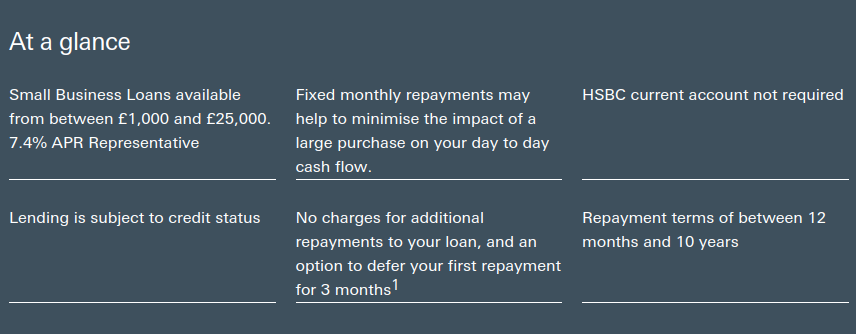
You will now need to provide some information about you and your business. Firstly, you’ll need to enter details about your personal identity, such as your full name, home address, date of birth, and contact details. Next, you’ll enter information about your company. This will include the trading name of your company, the status of the company (sole-trader, partnership, or limited liability, etc), the registered address of your company, and your company’s contact details.
You will also need to provide some detailed information about your company’s current financial standing. The good news for you is that some lenders are able to extract the required information from third-party sources, such as your previously filled accounts at Company House, as well as specialist credit bureaus.
Step 4: Provide documentation
Although business loan providers have a range of external third-party sources that they can use to verify your information electronically, it is likely that you will still need to upload some supporting documentation. The specificity of the required documents will vary from one lender to another and depend on the type of business loan, the size of the loan, and the type of company set-up you have. If you are a sole trader or your company was only launched recently, you might need to provide documentation regarding your personal financial standing, such as bank account statements or home ownership deeds.
Step 5: View your terms and sign the business loan agreement
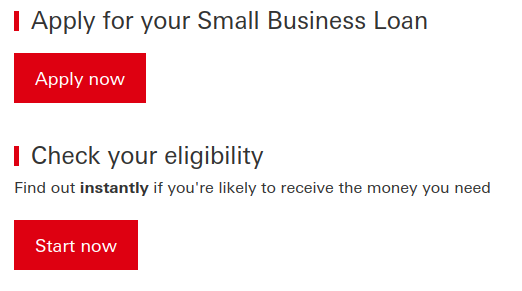
Once you have provided the required information and supporting documentation, the lender should be able to give you a decision on your business loan application within 1 working day. If your application was successful, then you will be presented with your loan terms.
This will include the amount that the loan provider is able to lend you, the underlying APR rate, how regular you need to make loan repayments, and whether or not the loan is secured or unsecured. If you’re happy with the terms outlined, then you’ll need to sign a digital loan agreement. Finally, the lender will then transfer the funds into your business bank account – which typically happens within 1-2 working days.
Best 3 business loan providers
There are tons of information available to you with regards to choosing a good business loan provider. However, the choosing a lender should boil down to such factors as the size of your business, the type of business loan you require, how much you need to borrow, and your company’s financial health. Nevertheless, we have listed the best 3 providers that we think should suit most small-to-medium businesses in the UK.
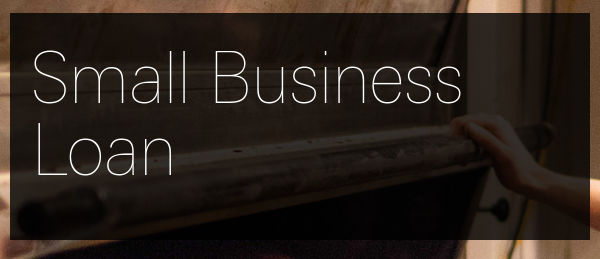
Before you peruse through our recommended providers, be sure to read the criteria used to sort these lenders.
Criteria used to rank the best business loan providers
- Lenders with the most competitive interest rates
- How much the lender is able to offer
- The number and type of business loans available
- What financial standing your company needs to have to be eligible
- Whether you need to put up assets as security
1. HSBC – Best for small business loans
If you are running a startup, or are simply a small company that requires a bit of extra funding, then it might be worth taking out a conventional business loan with HSBC.
The high street bank is currently offering business loans of between £1,000, and £25,000. The reason that we have chosen HSBC as the best option for small businesses is that the representative APR rate of 7.4% is very competitive.
Moreover, the loan comes with great flexibility, not least because you can borrow the funds from just 12 months, up to a maximum term of 10 years. HSBC will also give you a three-month grace period before making your the first repayment, and you won’t be charged for overpayments, or repaying the loan off early.
The loan repayments will be fixed each month, meaning that your business can budget efficiently
Our Rating

- Offers business loans of between £1,000 and £25,000
- Advertised APR interest rate of 7.4%
- Loan terms of between 1 – 10 years
- Low rates and high loan limits only available to creditworthy individuals
2. TSB Bank – Best for larger loan amounts
If the £25,000 cap being offered by HSBC doesn't quite meet the funding size that your company requires, then you might want to check out what TSB Bank has to offer.
In a nutshell, TSB Bank business loans start from £25,000 and have a a maximum of £1 million. The loans are somewhat flexible, meaning that the specific terms will depend on a range of metrics - such as how long your company has been trading for, the type of company set-up you have, and how much you need to borrow.
Moreover, TSB states that there are instances when the business loan might need to a collateral, meaning that you'll need to put a business or personal asset up as security. This is likely to be the case if your business is just starting out, have an unattractive credit history, or if the strength of your balance sheet is less than ideal.
In terms of the specifics, TSB can facilitate business loans from just 1 year, up to a maximum of 25 years. Moreover, the specific APR rate will depend on your business's creditworthiness. Finally, you will want to factor in the origination fee charged by TSB on its business loans, which can be as much as 1.5% of the total loan size.
Our Rating

- Multiple types of business loans of between £25,000 and £1 million
- Extended loan terms of between 1 - 25 years
- Perfect if your business requires a loan of significant size
- APR rate dependent on the creditworthiness of your business
- Charges origination fee of up to 1.5%
3. Barclays – Best if you require invoice factoring
If the biggest roadblock facing your business is being able to cover the costs of purchase orders, then you will be best off going down the invoice factoring route.
In doing so, you will only borrow funds as and when you receive a new purchase order, and as long as your customer settles the invoice in a reasonable time frame, you can then repay the funds back quickly. High street bank Barclays is offering invoice finance of up to 90% of the purchase order amount.
As such, if your order is worth £100,000, then Barclays can transfer £90,000 into your business account in quick fashion. In order to qualify for Barclays loan, you will need to have been in business for over 12 months.
Note also that Barclays will only fund the invoices of limited company or limited liability partnerships effectively locking out sole trader and other startups. Moreover, your business must have generated a minimum £100,000 in revenues within the last 12 months. And that neither the business or its directors have filed for bankruptcy in the recent past. The interest that you pay on the borrowed funds will depend on the creditworthiness of your company.
Our Rating

- Invoice finance of up to 90% of the value of the invoice
- Fast loan application processing and disbursement of funds - within 2 business days
- Extended loan repayment periods of up to 12 months
- Your company must have made more than £100,000 in the last 12 months
- No guarantee you'll qualify for the high loan limits
What is a Business Loan?
In its most basic form, a business loan is a type of financing that is tailored towards businesses. In some cases, this could be a few thousand pounds for a new business start-up, right up to a couple of million of pounds for an established company. However, it is important to note that business loans come with a range of shapes and sizes. While the most common business loan type is that of a conventional bank or building society loan, other options exist, too. For example, you also have the option of invoice factoring, a business overdraft, rolling credit facilities, and even asset backed loans.
As such, we have listed the three primary types of business loan below:
- Bank Loans

As noted above, the most common type of business financing is that of a conventional loan. This will usually come from a traditional bank or building society, although in some cases, it could be from a specialist lender. This is likely to be the case if your business was recently launched, or if your business is currently in an adverse financial position.
The fundamentals of a business loan from a high street lender will work much in the same way as any other loan type. In other words, you borrow a fixed amount of money at a fixed rate of interest and make your repayments each month until both the loan plus accrued interests are is repaid in full.
- Invoice Factoring
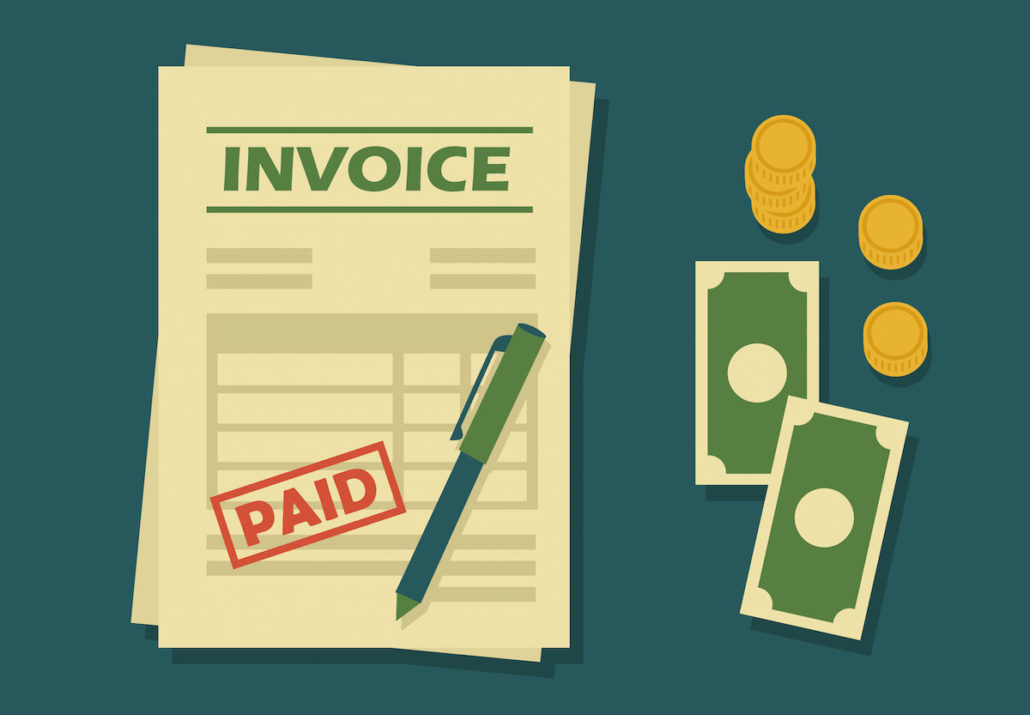
The second option that your business has at its disposal is that of invoice factoring. This is highly useful if your business is getting a lot of orders, but you don’t quite have the cash flow levels to facilitate the order. For example, this could include the costs of manufacturing the goods, or the costs of ordering them in from a supplier.
Either way, invoice factoring will see the lender give you an amount of cash that is proportionate to the size of your purchase order. This can be as high as 95% of the order amount, which should be sufficient for you to meet the costs of facilitating the order.
Here’s a quick example of how invoice factoring works in the context of a business loan.
- Your paper merchant business receives an order from a customer to the value of £50,000
- You need to order the stock in from a supplier, which will cost you £30,000. However, your business doesn’t have enough cash to do this
- As such, you present the purchase order that your customer sent you for £50,000 to your invoice factoring provider
- Your invoice factoring agreement allows you to receive 80% of the purchase order value upfront
- This means that the lender can transfer up to £40,000 (80% of £50,000) into your account, although you only request £30,000 to cover the cost of the order
- Once you receive the cash, you then pay your supplier and deliver the goods to your customer
- As soon as your customer pays you, you can then forward of the £30,000 that you borrowed from the invoice factoring company, plus the interest that came with the loan
- Revolving Credit Facilities
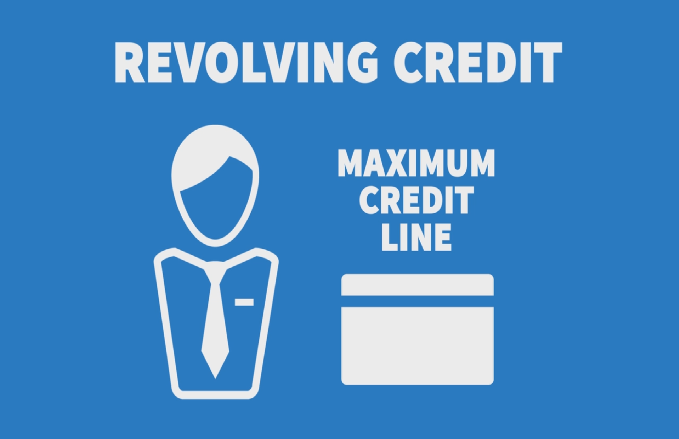
If your business is unable to predict the future with sales and operations, then it might be worth considering a business loan in the form of revolving credit facilities. Put simply, a revolving credit operates like a conventional overdraft, insofar that the lender will give you a draw-down limit.
For example, you might receive a credit facility for £25,000, which is the most that you will be able to utilize. The great thing about revolving credit facilities is that you only pay interest when you actually draw down the money. As such, it acts as a safety net in times of financial distress when you are unable to meet obligations when cash flow levels are unable to do this.
Try Our Recommended UK Payday Loan Provider 2020:

- Get an Instant Quote
- Apply within 2 Minutes
- Friendly Support Service
- FCA Regulated
 *Subject to lender requirements and approval.
*Subject to lender requirements and approval.Glossary of loan terms
 Credit Score
Credit ScoreA credit score shows your creditworthiness. It's primarily based on how much money you owe to loan or credit card companies, if you have ever missed payments or if you have ever defaulted on a loan.
 Guaranteed Approval
Guaranteed ApprovalGuaranteed Approval is when, no matter how bad, your credit score its, your loan application will not get declined.
 Credit Limit
Credit LimitA Credit Limit is the highest amont of credit a lender will lend to the borrower.
 Collateral
CollateralCollateral is when you put up an item against your loan such as your house or car. These can be repossessed if you miss payments.
 Cash Advance
Cash AdvanceA Cash Advance is a short-term loan that has steep interest rates and fees.
 Credit Rating
Credit RatingYour Credit Rating is how likely you are to fulfill your loan payments and how risky you are as a borrower.
 Fixed Interest Rate
Fixed Interest RateFixed Interest Rate is when the interest rate of your loan will not change over the period you are paying off you loan.
 Interest
InterestThe Interest is a percentage based on the amount of your loan that you pay back to the lender for using their money
 Default
DefaultIf you default on your loan it means you are unable to keep up with your payments and no longer pay back your loan.
 Late Fee
Late FeeIf you miss a payment the lender will charge you for being late, this is known as a late fee.
 Unsecured Personal Loan
Unsecured Personal LoanAn Unsecured Personal Loan is when you have a loan based solely on your creditworthliness without using collateral.
 Secured Loan
Secured LoanA Secured Loan is when you put collateral such as your house or car up against the amount you're borrowing.
 Prime Rate
Prime RateThis is the Interest Rate used by banks for borrowers with good credit scores.
 Principal
PrincipalThe Principal amount the borrower owes the lender, not including any interest or fees.
 Variable Rate
Variable RateA Variable Rate is when the interest rate of you loan will change with inflation. Sometimes this will lower your interest rate, but other times it will increase.
 Installment Loan
Installment LoanAn Installment Loan is a loan that is paid back bi-weekly or monthly over the period in which the loan is borrowed for.
 Bridge Loan
Bridge LoanA Bridge Loan is a short term loand that can last from 2 weeks up to 3 years dependant on lender.
 AAA Credit
AAA CreditHaving an AAA Credit Rating is the highest rating you can have.
 Guarantor
GuarantorA Guarantor co-signs on a loan stating the borrower is able to make the payments, but if they miss any or default the Guarantor will have to pay.
 LIBOR
LIBORLIBOR is the London Inter-Bank Offered Rate which is the benchmarker for the interest rates in London. It is an average of the estimates interest rates given by different banks based on what they feel would be the best interest rate for future loans.
 Home Equity Loans
Home Equity LoansHome Equity Loans is where you borrow the equity from your property and pay it back with interest and fees over an agreed time period with the lender.
 Debt Consolidation
Debt ConsolidationDebt Consolidation is when you take out one loans to pay off all others. This leads to one monthly payment, usually with a lower interest rate.
 Student Loan
Student LoanIf you obtain a Student Loan to pay your way through College then you loan is held with the Department for Education U.K.
 Student Grants
Student GrantsFinancial Aid in the form of grants is funding available to post-secondary education students throughout the United Kingdom and you are not required to pay grant
FAQ
How much can I borrow via a business loan?
The specific amount that you are able to borrow will depend on a full range of factors. This will include the type of company set-up you have (limited company, sole trader, etc), the creditworthiness of your business, and the type of business loan you are looking to obtain. With that being said, business loans usually start from just £1,000, all the way up to a million pounds-plus..
What is invoice factoring?
In its most basic form, invoice factoring is where the loan provider lends you funds against a purchase order. For example, if you receive a new order from a customer and you need financial assistance to meet the order in full, the lender will give you a percentage of the total order amount upfront as cash. Invoice factoring is perfect for companies that struggle with cash flow – especially startups.
Can I get a business loan if I am a sole trader?
There are plenty of lenders out there that are willing to lend to sole traders. However, the process is going to be somewhat different to that of a business that is registered as a limited liability company. Most crucially, as a sole trader you will likely need to put your personal assets up as security in order to get the loan, and the amount that you will be able to get is likely to be much lower than an established limited company.
Kane Pepi
View all posts by Kane PepiKane holds academic qualifications in the finance and financial investigation fields. With a passion for all-things finance, he currently writes for a number of online publications.
Latest News
Halifax Share Dealing Review
If you’re looking for a low-cost share dealing platform that makes it super easy to buy and sell stocks, ETFs, and funds, it might be worth considering Halifax. You don’t need to have a current account with the provider, and getting started takes just minutes. In this article, we review the ins and outs of...
UK Banks Approved Nearly 1 Million Mortgages in 2019, 7.4% More than a Year Ago
The United Kingdom’s high street banks approved close to a million mortgages in 2019. Data gathered by LearnBonds.com indicates that 982,286 mortgages were approved in 2019, an increase of 7.4% from 2018’s 909,597. The mortgage approval entails loans for home purchase, remortgaging and other loans. Compared to 2018, the number of mortgages approved for home...
WARNING: The content on this site should not be considered investment advice and we are not authorised to provide investment advice. Nothing on this website is an endorsement or recommendation of a particular trading strategy or investment decision. The information on this website is general in nature, so you must consider the information in light of your objectives, financial situation and needs. Investing is speculative. When investing your capital is at risk. This site is not intended for use in jurisdictions in which the trading or investments described are prohibited and should only be used by such persons and in such ways as are legally permitted. Your investment may not qualify for investor protection in your country or state of residence, so please conduct your own due diligence or obtain advice where necessary. Crypto promotions on this site do not comply with the UK Financial Promotions Regime and is not intended for UK consumers. This website is free for you to use but we may receive a commission from the companies we feature on this site.
Copyright © 2022 | Learnbonds.com
We use cookies to ensure that we give you the best experience on our website. If you continue to use this site we will assume that you are happy with it.Scroll Up



